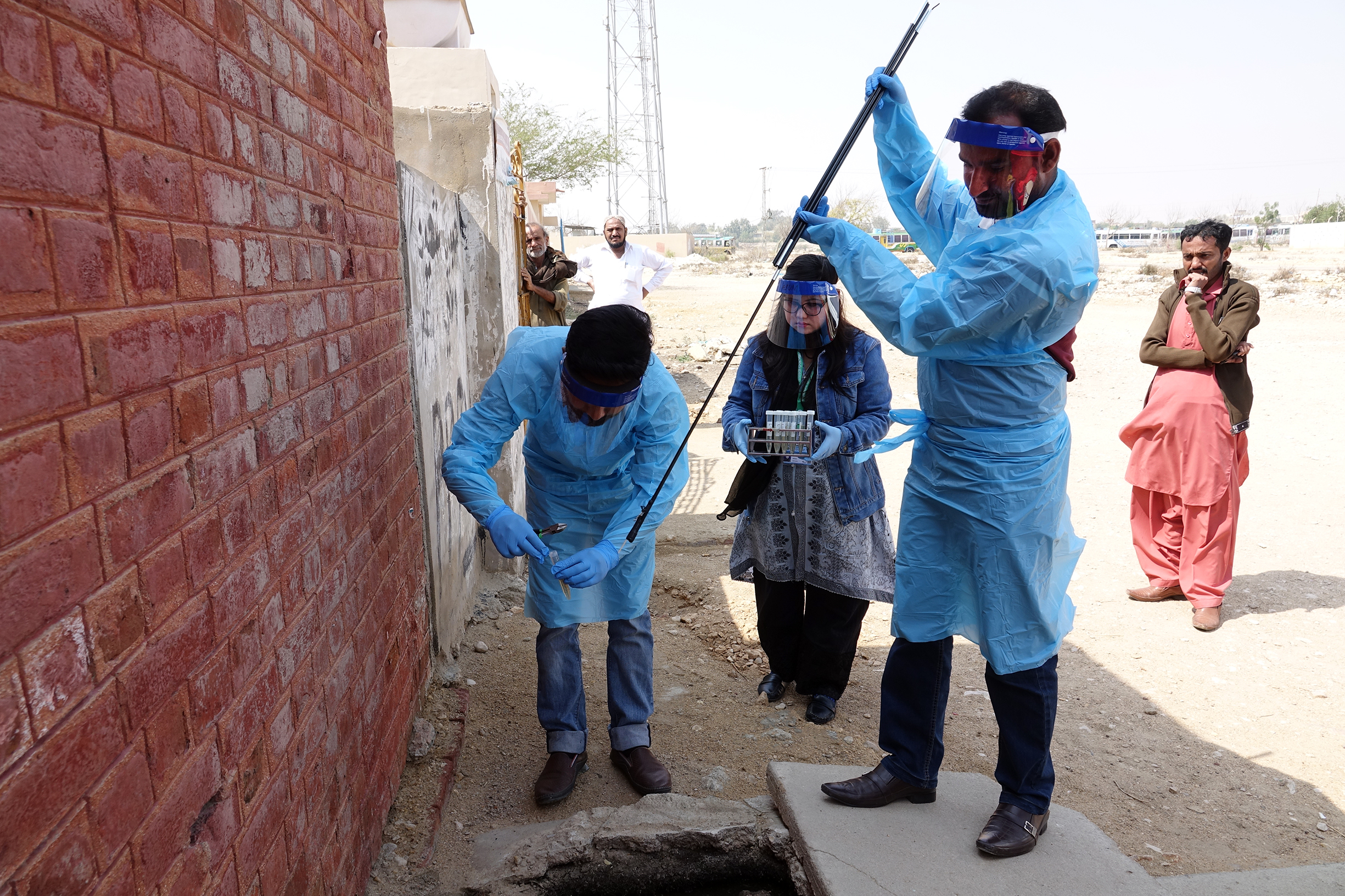
FIELD REPORT
Several University of Utah School of Medicine faculty traveled to Pakistan this spring to conduct two studies aimed at identifying pathways through which antimicrobial resistance is transferred within communities.
Working in tandem with Mehran University of Engineering and Technology professors Drs. Ayesha Tajamul and Jamil Soomro, U professors Scott Benson, Windy Tanner, Mallory Leetham, and USPCASW partner Dr. Josh Garn of University of Nevada, Reno, sampled latrines, sinks, and drains in schools, public buildings and other facilities in and around Hyderabad, Sindh Province. The studies were designed to assess the prevalence of multiple drug resistant Enterobacteriaceae in communities and hospital settings. Notably, the researchers discovered carbapenem-resistant E. coli (CRE) in 76 percent of the latrine samples. Sink drain results were not considered to be notable.



Antibiotic-resistant infections is a growing problem around the world, particularly in countries like Pakistan and India, in part due to overuse of antibiotic medications. Not far from MUET’s campus in Hyderabad, the community continues to combat an ongoing outbreak of highly drug-resistant Typhoid fever, caused by the bacterium Salmonella typhi, that has sickened over 5,200 people since 2016.
Both the latrine and sink studies are innovative investigations designed to identify pathways through which antimicrobial resistant bacteria are transmitted within communities. The presence and transmission of antimicrobial bacteria place populations at risk for life-threatening infections. The investigators hypothesize the such organisms may be passed via fecal contamination of drinking water, a common transmission routes for many types of infection. By developing novel approaches to locate reservoirs of resistant organisms that possess and pass on resistance, interventions can be developed to reduce the burden and threat of antimicrobial resistance to communities and individuals.


The collaboration also provided professional development opportunities for faculty and students at MUET. On-site training missions are part of USPCASW’s “learn by doing” training philosophy, connecting faculty in Pakistan with partners in the U.S. to advance research skills, improve course content, modernize teaching methodology, and establish best practices of being a complete professor. Over 20 USPCASW students participated in sampling and lab techniques. The team also identified needs for future training and opportunities for lab enhancements at MUET. As part of this effort, Dr. Ayesha Tajammul will be spending the summer at the U learning advanced lab techniques and epidemiological analysis with Drs. Tanner and Benson, and Dr. Jim VanDerslice, Interim Chief for the U's Division of Public Health.


The trip culminated with MUET’s graduation ceremony, during which the first group of Masters in Water, Sanitation and Health Sciences students at were awarded their degrees. The program is one of four graduate programs the U has helped to launch at MUET as part of the USPCASW partnership; it prepares students to assess the needs of a community and implement health-minded, community-informed technical solutions to water supply and sanitation challenges.
________
Photos courtesy Dr. Jeffrey Layton Ullman, USPCASW Technical Advisor
